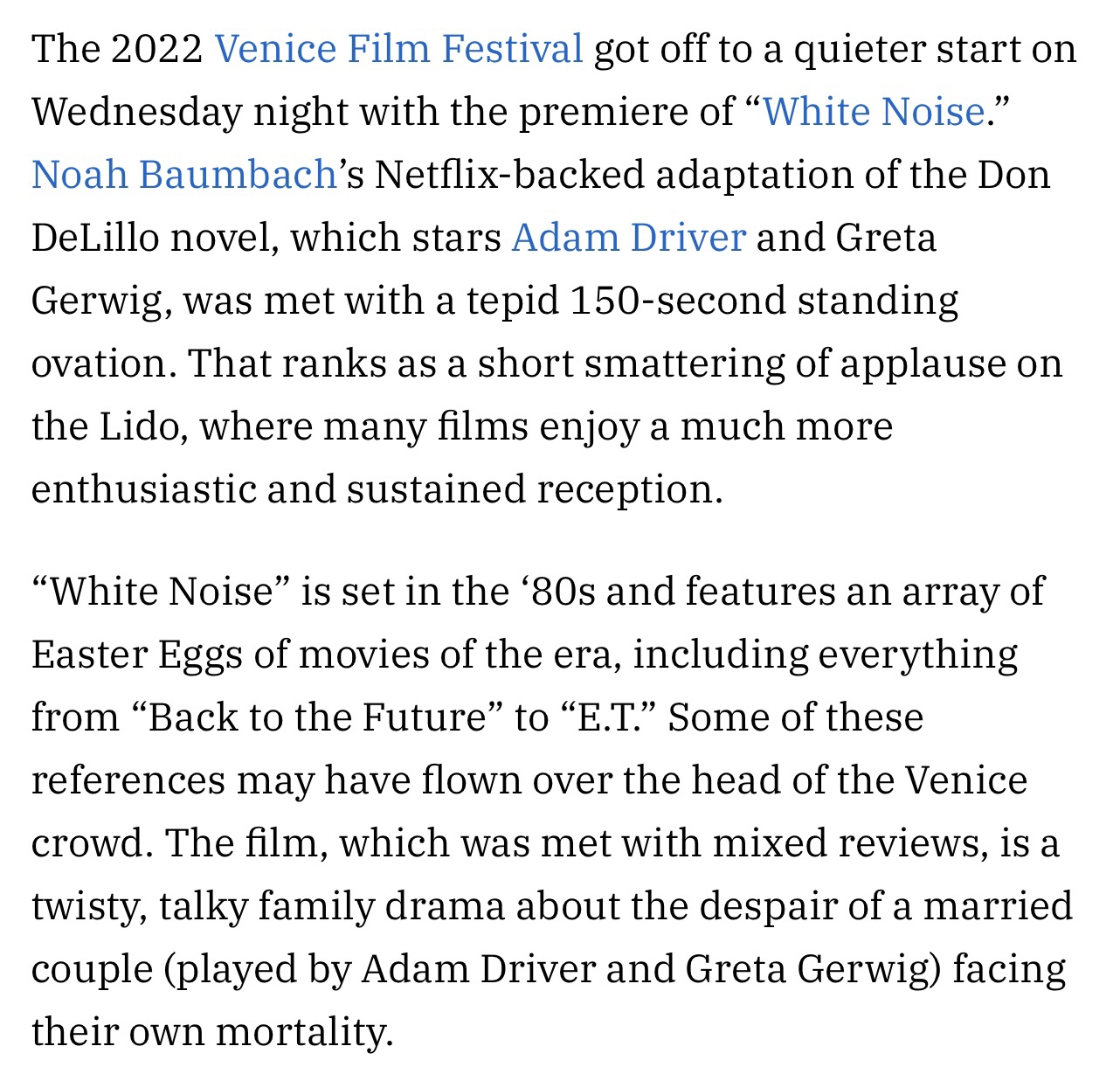It would appear that Noah Baumbach‘s White Noise has been more or less downgraded, at least as far as Venice Film Festival critics are concerned. The last time I checked a 69% Metacritic rating signified something between teetering and over and out.
From Owen Gleiberman‘s less-than-ecstatic Variety review: “On the page, Don DeLillo‘s ‘White Noise’ achieved total heaviosity. It was a novel of ideas. But that’s a tricky thing to translate to the big screen. As a movie, White Noise announces its themes loudly and proudly, but the trouble is that it announces them more than it makes you feel them.
“Greta Gerwig has one of the best scenes — a tearfully extended, ripped-from the-gut monologue in which she confesses her adultery to Jack, though her transgression isn’t about any desire to stray so much as her compulsion to get those [mood-stabilizing] pills by any means necessary. By the time Jack heads out with a tiny gun to confront the man Babette slept with, White Noise has found its heart of darkness but lost its pulse. We no longer buy what we’re seeing, even as we’re told, explicitly, what it all means. The film ties itself into knots to explicate the bad news.
“How telling, then, that it’s so much more effective when it’s willing to be upbeat, notably in a triumphantly daffy closing-credits dance sequence that takes place in the brightly lit aisles of the A&P. Set to the joyful thumping groove of ‘New Body Rhumba’ by LCD Soundsystem, the place really does seem like ironic nirvana. That’s a quality White Noise could have used more of.”
THR‘s David Rooney: “There’s much to appreciate in Noah Baumbach’s alternately exhilarating and enervating attempt to tame Don DeLillo’s comedy of death, White Noise, not least the daredevil spirit and ambition with which the writer-director and his cast plunge into the tricky material.
“But little in this episodic freakout hits the target quite so well as the wild end-credits sequence, a dance number set in a suburban A&P supermarket, in which the entire ensemble boogie in aisles stacked with colorful products, accompanied by an LCD Soundsystem banger called ‘New Body Rhumba.’ With that ecstatic visual, Baumbach nails a key theme of the book — Americans seeking solace from their mortality in consumerism.”
HE: Remember how everyone said that the best part of Edward Dmytryk‘s Walk on the Wild Side (’62) was the opening main-title sequence with the black cat?










